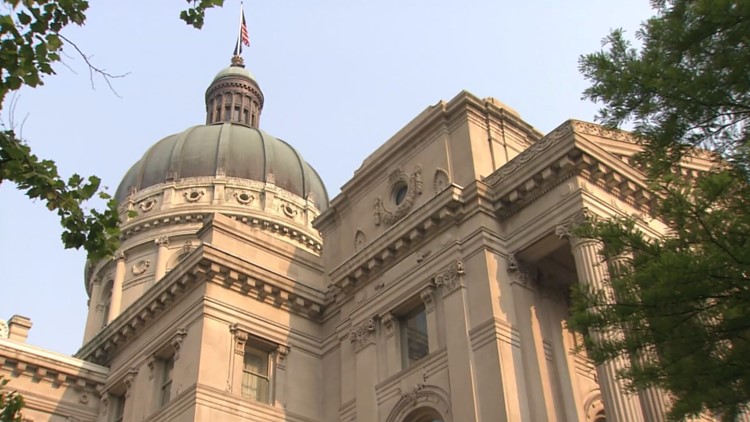INDIANAPOLIS — Democracy. Republic. Sedition. Treason. Obstruction. Inflation. Stagflation. Recession. These are the terms that are driving our politics of today.
After Indiana Republicans struck the word “democracy” from their convention platform last month, replacing it with “republic,” I thought it would be altogether appropriate to review the definitions of these words in the context of today’s troubled waters.
Democracy (noun): Definition of democracy 1a: government by the people, especially: rule of the majority. b: a government in which the supreme power is vested in the people and exercised by them directly or indirectly through a system of representation usually involving periodically-held free elections. 2: A Political unit that has a democratic government (Merriam-Webster).
Republic (noun): Definition of republic (1): a government having a chief of state who is not a monarch and who in modern times is usually a president; (2): a political unit (such as a nation) having such a form of government; b (1): a government in which supreme power resides in a body of citizens entitled to vote and is exercised by elected officers and representatives responsible to them and governing according to law; (2): a political unit (such as a nation) having such a form of government; c: a usually specified republican government of a political unit; the French Fourth Republic. 2: a body of persons freely engaged in a specified activity the republic of letters (Merriam-Webster).
What’s the difference between a “democracy” and a “republic?”
Jay Cost, writing for the American Enterprise Institute, observes: “‘The United States is a republic, not a democracy.’ The word ‘republic’ — deriving from the Latin phrase res publica, or ‘the people’s concern’ — suggests a measure of popular involvement in government. And the authors of the Constitution were radically republican, at least for their age, believing that the only legitimate form of government was one in which public authority derived entirely from the people. But it is not wholly democratic, in that they feared the abuse of that authority by the people and designed an instrument of government intended to keep temporary, imprudent, and intemperate outbursts of public opinion from dominating the body politic. Their primary method of doing this was the separation of power across three branches of government.”
Seditious conspiracy (U.S. Code): If two or more persons in any State or Territory, or in any place subject to the jurisdiction of the United States, conspire to overthrow, put down, or to destroy by force the Government of the United States, or to levy war against them, or to oppose by force the authority thereof, or by force to prevent, hinder, or delay the execution of any law of the United States, or by force to seize, take, or possess any property of the United States contrary to the authority thereof, they shall each be fined under this title or imprisoned not more than 20 years, or both (Cornell Law School).
Rebellion or insurrection (U.S. Code): Whoever incites, sets on foot, assists, or engages in any rebellion or insurrection against the authority of the United States or the laws thereof, or gives aid or comfort thereto, shall be fined under this title or imprisoned not more than 10 years, or both; and shall be incapable of holding any office under the United States (Cornell Law School).
Advocating overthrow of Government (U.S. Code): Whoever knowingly or willfully advocates, abets, advises, or teaches the duty, necessity, desirability, or propriety of overthrowing or destroying the government of the United States or the government of any State, Territory, District or Possession thereof, or the government of any political subdivision therein, by force or violence, or by the assassination of any officer of any such government; or Whoever, with intent to cause the overthrow or destruction of any such government, prints, publishes, edits, issues, circulates, sells, distributes, or publicly displays any written or printed matter advocating, advising, or teaching the duty, necessity, desirability, or propriety of overthrowing or destroying any government in the United States by force or violence, or attempts to do so (Cornell Law School).
Treason (noun): The crime of betraying one’s country, especially by attempting to kill the sovereign or overthrow the government; the action of betraying someone or something (Oxford).
Recession (noun): A recession is a significant decline in economic activity that lasts for months or even years. Experts declare a recession when a nation’s economy experiences negative gross domestic product (GDP), rising levels of unemployment, falling retail sales, and contracting measures of income and manufacturing for an extended period of time. Recessions are considered an unavoidable part of the business cycle – or the regular cadence of expansion and contraction that occurs in a nation’s economy (Forbes).
Stagflation (noun): Stagflation is a combination of the words stagnation and inflation. It describes an economic condition characterized by slow growth and high unemployment (economic stagnation) mixed with rising prices (inflation) (Business Insider).
Stagflation vs. inflation: Stagflation and inflation are related, but they shouldn’t be confused. The term inflation refers to a sustained increase in the average price level of all goods and services, not just a few of them, in an economy over time. Inflation happens when the money supply grows at a faster rate than the economy can produce goods and services (Business Insider).
The columnist is publisher of Howey Politics Indiana at www.howeypolitics.com. Find Howey on Facebook and Twitter @hwypol.



